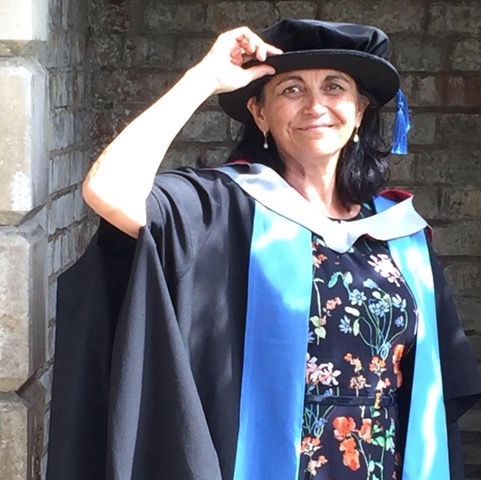Part 1: Dr. Suzanne M. Steele, scholar and editor

Dr. Suzanne Steele has built her career on words as a librarian, a war poet, a librettist, a teacher and an academic editor working with ESL writers who are often translating their ideas across cultures as well as languages. Virginia Durksen is the editor for Suzanne’s upcoming project, Riel: Heart of the North, an undertaking that requires Suzanne to work in five languages. In a series of interviews for the Editors’ Weekly, Virginia and Suzanne explore the relationship between writing and editing, as well as between one author and her editor.
Poetry is how I first encountered you, and you are increasingly known in Canada for your work as an artist. Yet editing plays a big part in how you make a living. How do you manage the balance between the two?
All artists are ultimately editors. We take the raw data of the world and of experience and emotion and we edit. The art is in the editing. And in getting out of the way so that the words on the page can speak for themselves.
How has your experience as a writer and war poet influenced your work as an editor?
It makes me a kinder editor. As a teacher and mentor and editor, I never say, “That’s wrong, that’s bad.” Instead, I name what I see and I say, “That’s an interesting idea; have you thought of X, Y or Z?”
I edit scholars as their equal. I belong to the scholarly community, so we could just as well be sitting down and having coffee and discussing our ideas.
Do you take any special precautions to avoid having an undue influence on a grad student’s ideas?
First of all, I have permission from their supervisors to engage with their grad students’ ideas in draft form. Without restrictions.
We teach each other all the time in cross-disciplinary programs. There’s nothing untoward in learning from someone else. I look at the overall value of the scholarship. I recently worked on a dissertation on Saudi feminism that allowed me to take off my editorial hat and put on my scholarly hat. PhDs from around the world are working on really interesting and challenging topics. There’s great work going on and it’s well worth being engaged, especially with writers who are working in English as a second language.
These massive projects are exhausting. That’s another job of the editor — to act as cheerleader as much as anything else. I learned this in writing my own dissertation. I hired editors with the full blessing of my supervisors, and a huge part of their role was cheerleading.
One editor worked on just one chapter and gave me just that little push I needed to keep going. As editors, we start learning our clients’ habits. She helped me see what I was doing and taught me a simple trick to fix it. I actually think quite differently from the classical English essay style. She noticed that I needed to cut the last line from the previous paragraph and put it with the next paragraphs. That’s all it took to bring the chapter back to life.
I’m used to being asked if I’m more of a writer or an editor. But with you, the question seems to be more complicated: librarian? scholar? writer? editor? Is it possible for you to choose one?
I love editing. It is such a glorious break from the creative work, so I guess I’m not really choosing. Editing is creative in a different way. It’s not usually as gut wrenching as creative work. Marjorie Rawlings, who wrote The Yearling, refers to the anguish of writing. That’s true, except when I’m in flow. Then the anguish lifts.
You also can’t separate the librarian from the editor in me. My clients get a lot of bang for their buck. I don’t treat them any differently than if I was working at a reference desk. Good editors learn to point their clients in the right direction.
And the writer in me is a multimedia artist. I work with composers and singers and actors and even that rarest of editing types, a dramaturge. As editors, I think we need a more multimedia definition of what an editor is. We are no longer working in the Times Roman era. It’s an exciting time for artists and editors to work together.
___
Part 2 coming soon!
___
Previous post from Virginia Durksen: The Inner Editor: Please Allow Me To … Interrupt You.
The Editors’ Weekly is the official blog of Editors Canada. Contact us.
Discover more from L'HEBDOMADAIRE DES RÉVISEURS
Subscribe to get the latest posts sent to your email.
